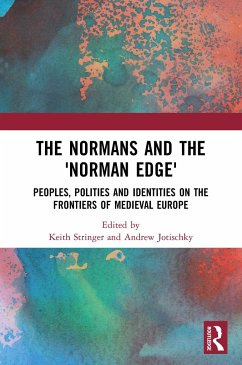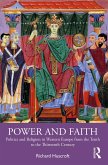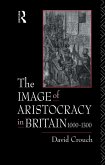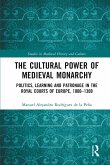Modern historians of the Normans have tended to treat their enterprises and
achievements as a series of separate and discrete histories. Such treatments are
valid and valuable, but historical understanding of the Normans also depends
as much on broader approaches akin to those adopted in this book. As the
successor volume to Norman Expansion: Connections, Continuities and Contrasts,
it complements and significantly extends its findings to provide a fuller appreciation
of the roles played by the Normans as one of the most dynamic and
transformative forces in the history of medieval 'Outer Europe'. It includes
panoramic essays that dissect the conceptual and methodological issues concerned,
suggest strategies for avoiding associated pitfalls, and indicate how far
and in what ways the Normans and their legacies served to reshape sociopolitical
landscapes across a vast geography extending from the remoter corners
of the British Isles to the Mediterranean basin. Leading experts in their fields
also provide case-by-case analyses, set within and between different areas, of
themes such as lordship and domination, identities and identification, naming
patterns, marriage policies, saints' cults, intercultural exchanges, and diaspora-
homeland connections.
The Normans and the 'Norman Edge' therefore presents a potent combination
of thought-provoking overviews and fresh insights derived from new
research, and its wide-ranging comparative focus has the advantage of illuminating
aspects of the Norman past that traditional regional or national histories
often do not reveal so clearly. It likewise makes a major contribution
to current Norman scholarship by reconsidering the links between Norman
expansion and 'state-formation'; the extent to which Norman practices and
priorities were distinctive; the balance between continuity and innovation;
relations between the Normans and the indigenous peoples and cultures they
encountered; and, not least, forms of Norman identity and their resilience over
time. An extensive bibliography is also one of this book's strengths.
achievements as a series of separate and discrete histories. Such treatments are
valid and valuable, but historical understanding of the Normans also depends
as much on broader approaches akin to those adopted in this book. As the
successor volume to Norman Expansion: Connections, Continuities and Contrasts,
it complements and significantly extends its findings to provide a fuller appreciation
of the roles played by the Normans as one of the most dynamic and
transformative forces in the history of medieval 'Outer Europe'. It includes
panoramic essays that dissect the conceptual and methodological issues concerned,
suggest strategies for avoiding associated pitfalls, and indicate how far
and in what ways the Normans and their legacies served to reshape sociopolitical
landscapes across a vast geography extending from the remoter corners
of the British Isles to the Mediterranean basin. Leading experts in their fields
also provide case-by-case analyses, set within and between different areas, of
themes such as lordship and domination, identities and identification, naming
patterns, marriage policies, saints' cults, intercultural exchanges, and diaspora-
homeland connections.
The Normans and the 'Norman Edge' therefore presents a potent combination
of thought-provoking overviews and fresh insights derived from new
research, and its wide-ranging comparative focus has the advantage of illuminating
aspects of the Norman past that traditional regional or national histories
often do not reveal so clearly. It likewise makes a major contribution
to current Norman scholarship by reconsidering the links between Norman
expansion and 'state-formation'; the extent to which Norman practices and
priorities were distinctive; the balance between continuity and innovation;
relations between the Normans and the indigenous peoples and cultures they
encountered; and, not least, forms of Norman identity and their resilience over
time. An extensive bibliography is also one of this book's strengths.








